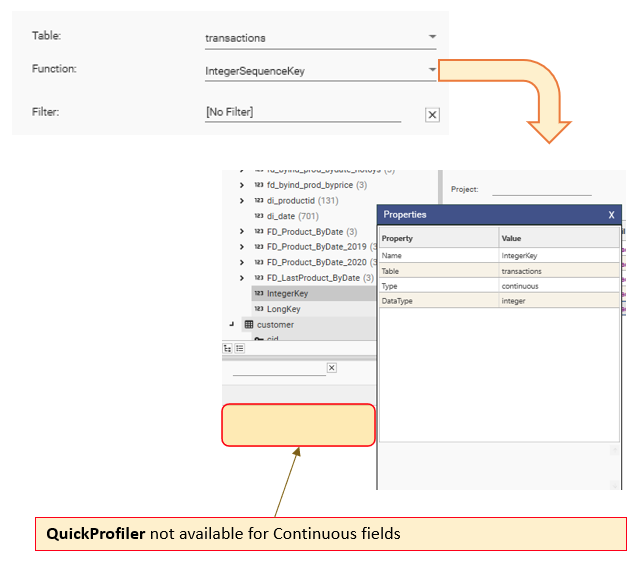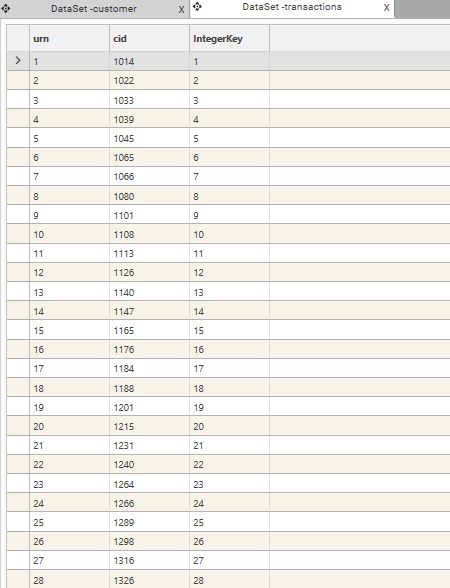General: IntegerSequenceKey
Produces a field that is the record number in a table, stored as a continuous integer.
Purpose
Use this function to:
- Create a unique primary key on an existing table
- Identify and select specific records by number
Return Value
| Property | Value |
|---|---|
| FieldType | Integer |
| FieldSize | Continuous |
| DataType | Continuous |
| DataSize | Integer |
Example Return Value: 1.....N where N = number of records in the table.
FieldSize and DataSize will depend on the number of records in the table:
- IntegerSequenceKey will always be a Continuous DataSize. See FieldTypes and DataType for more information.
- IntegerSequenceKey is valid for up to 2 billion records (+- 231 -1). For tables larger than this, see LongSequenceKey
- On tables of less than 1 million rows, DiscreteIntegerSequence can be used to create an indexed key
Parameters
| Parameter | JSON | Description |
|---|---|---|
| Table | “targetTable”: “MyTableName” | The target table on which the new field will be created |
| Filter | “dataset”: {DataSet_JSON} | NOT USED |
| Function | "function":"integersequencekey" | IntegerSequenceKey |
JSON Sample
{
"method": "BuildBakedField",
"project": "D3",
"targetTable": "transactions",
"overwrite": true,
"name": "IntegerKey",
"function": "integersequencekey"
}Usage Notes
IntegerSequenceKey does not support filters.
See Also:
- Engineering | Expression Field
- LongSequenceKey (General Functions)
- DiscreteIntegerSequence (General Functions)
- MakeContinuousKey (General Functions)
Example
| Example | Details |
|---|---|
| Description | |
| Input |
|
| Sample |  |
